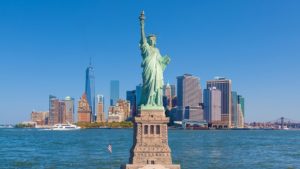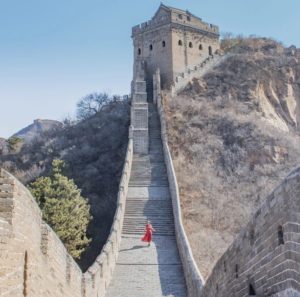INVESTMENT PERSPECTIVE
By J Mulraj
Dec 11-17, 2022
Too many factors make it difficult
There are too many factors working towards pushing the world into a recession. Some countries may already be in one. The creation of excess money supply to help during the Covid pandemic, the ensuing inflation, the supply chain bottlenecks, geopolitical tensions, the Ukraine war, and the gathering momentum of de-dollarisation, combine to make recession very likely to happen.
And, since interest rates haven’t been pushed high enough (the up cycle began late, thanks to the blinkered view of Jerome Powell that the inflation was transitory), there is not enough cushion to lower rates in order to make for a soft landing.
Consider the situation in the three leading countries/block.
 USA is the world’s largest economy, with a GDP of $ 23 trillion. The main issues it is facing are (a) Inflation and (b) the gathering momentum of de-dollarisation.
USA is the world’s largest economy, with a GDP of $ 23 trillion. The main issues it is facing are (a) Inflation and (b) the gathering momentum of de-dollarisation.
The US stock market was overjoyed when the November inflation figure was revealed at 7.1%, down from 7.7% in October. That’s wonky logic! Prices are still rising, by over 7%, albeit by a slightly lower % than in the previous month, but aren’t falling. As per this article a whopping 69% of Americans are struggling to pay their grocery bills.
What the market doesn’t realize is that the inflation number would be higher were it not for Covid lockdowns in China due to its zero tolerance policies? China is a huge buyer of commodities. Now this policy is being renewed, after public protest, although it’s uncertain if it will be quickly reversed, after the number of Covid cases has exploded. But if it was, expect commodity prices to rise.
What is of greater concern for USA is the call by Xi Jinping to Arab nations, at the recent Arab summit in Saudi Arabia, to trade their oil in Chinese yuan instead of USD. Should they accept, it would doom the petrodollar. It is because of the petrodollar (US $s sold to buyers of oil, hitherto traded in USD, and kept outside of USA, thus not contributing to inflation in it)! That USA has been able to live beyond its means. Any threat to the petrodollar, if oil producing nations trade in any other currency, will be a big blow to the American economy.
Because of rising interest to fight inflation, and high labour cost, corporate profit margins will be squeezed. Rising interest rates will affect equity and venture investing. Basically, the yields on T Bills equates to the risk free rate of return. Equity investors add a risk premium to that rate to arrive at a target return. And venture funds, which provide capital to innovative start ups, add a further risk premium, being more risky than equity. So, with each rise in rates by the Fed, VC firms would be able to fund fewer startups, as their hurdle rates would rise, and that would impact innovation.
Two main pillars of USA are that the USD is the globally accepted currency, and the amazing start-up eco system that fosters innovation.
Just last week, USA announced a break through in fusion energy. If two atomic particles are fused, by heating them at extremely high temperatures, they release energy. In an experiment, USA managed to generate more energy than was needed to conduct it. The energy generated was tiny, enough to boil three kettles, but it was a breakthrough. It will take a decade or two to reach commercial scale. High interest rates would delay the capex needed to achieve scale.
Last week the Fed raised interest rates by 0.5% (lower than the previous hikes of 0.75%) but stated it would continue raising rates, and expects to end 2023 with the Fund rate of 5.1%.
 China is the largest but one economy, with a GDP of $ 17.7 trillion. The main issues facing China are (a) the zero tolerance Covid policy which impacts industrial, and agricultural, output and thus exports (b) the collapse of the realty sector, which accounted for 31% of GDP (c) demographics.
China is the largest but one economy, with a GDP of $ 17.7 trillion. The main issues facing China are (a) the zero tolerance Covid policy which impacts industrial, and agricultural, output and thus exports (b) the collapse of the realty sector, which accounted for 31% of GDP (c) demographics.
The forced incarceration is creating social unrest as earlier exemplified by the refusal of buyers of undelivered homes to pay interest on mortgage loans taken from banks, (causing a banking crisis) and, now, a public outcry against Xi and the CCP after people died in a building fire. They were trapped inside their flats, locked by over zealous state employees seeking to get brownie points for enforcing the mandate of zero tolerance to Covid. This is a display of a heartless arrogance and contempt for human life.
China’s GDP grew by 3.9% in Q3, a recovery from the 2.7% decline in Q2. But the continuation of its zero tolerance lockdown policy would negatively affect its GDP growth, and result in lower, perhaps negative, growth.
The collapse of the realty sector is adversely affecting its Provinces, or local Government. The main source of income for these Provinces is the auctioning of land parcels to developers. Because most of them are facing a cash crunch, land auctions are few, and at lower prices. The Provinces also bear the cost of funding the free Covid tests, a big drain on resources.
Perhaps China’s biggest concern is its demographics. Births are falling after the CCP introduced a one child policy in 1979, which it later modified, in 2016, to 2 children. But the chart, at 1:05 in this video shows that the number of births per 1000 persons has dropped from around 18, in 1979, to about 7, now. A birth rate of 2.1 is needed to sustain a country’s population. China is at 1.7. China’s population is aging, and, in a few years, will need 3 workers for every retiree. This, of course, will impact economic growth, which is why China is investing hugely in AI and robotics.
 The EU is, as a block, the third largest in terms of GDP, with a combined GDP of $ 16.6 trillion. It’s main concerns are (a) shortage of energy (b) high inflation (c) poor demographics.
The EU is, as a block, the third largest in terms of GDP, with a combined GDP of $ 16.6 trillion. It’s main concerns are (a) shortage of energy (b) high inflation (c) poor demographics.
The EU senselessly followed the US lead to cut off supply of Russian oil/gas, which was its primary source of energy. Doing this without having a back up supply of energy was lunacy, climbed upon short sighted mess and topped off with imbecility. Rather like an unpalatable sundae. EU is paying the price. Energy is in short supply, and expensive, at a time it’s most needed, in winter. Industry finds power rates unaffordable, and big firms, like BASF, are relocating.
Inflation is at 10% in Germany, 9.2% in UK and 7% in France (it has more nuclear energy).
Some 27 EU countries have complained to the WTO against the provisions of its recently passed $ 400 b. Inflation Reduction Act. Under this Act the US allows subsidies to EV manufacturers, but only those based in USA, disadvantaging others, including those in the EU. Some EU countries are seeing street protests against their leaders’ decision to cut Russian energy supply.
The birth rate is 1.6 per woman in Germany, 1.7 in UK, and 1.8 in France, lower than the 2.1 needed to sustain the population. There are also disputes over immigration between European countries, such as France and Italy.
So these three countries/blocs, accounting for just under 60% of global GDP, are likely to go into recession, should the Ukraine war continue to deprive Europe of energy and should the de-dollarisation movement gather momentum.
Last week the BSE Sensex closed at 61337, down 844, after the Fed stated it would keep raising rates through 2023.
Amongst all this, the India story looks the best, and will attract invest,ent funds. But, in an interconnected world India, too, would be impacted, if it’s customers get into a recession. A soft landing is possible only if there is a quick, negotiated, settlement to the Ukraine dispute, and if China buys better vaccines and ends lockdowns, and globalization picks up.
I don’t expect the myopic and vainglorious global polity to do all this; their egos are too puffed up. Divine intervention is our only hope.
Picture source: https://www.precisionpt.org/post/single-post-2015-10-07-hip-pain-what-a-pain-in-the-butt
Comments may be sent to jmulraj@asiaconverge.com










































COMMENTS